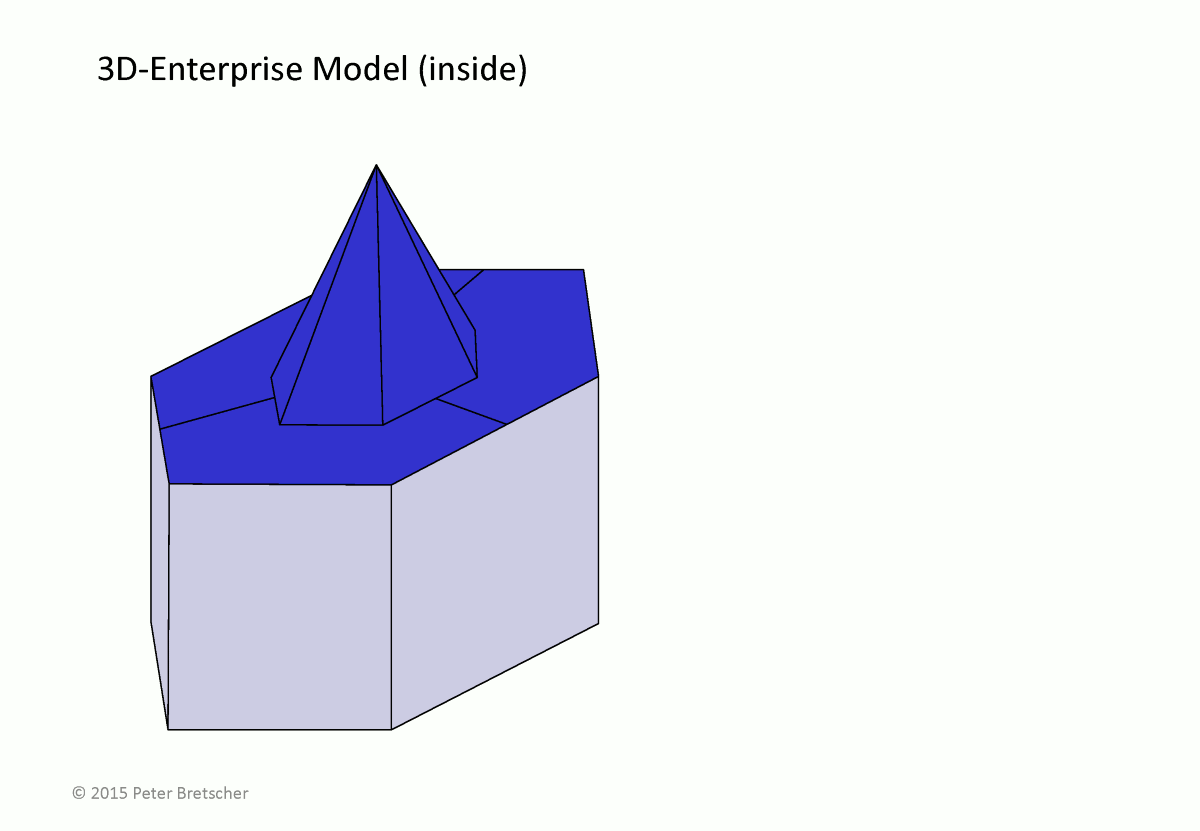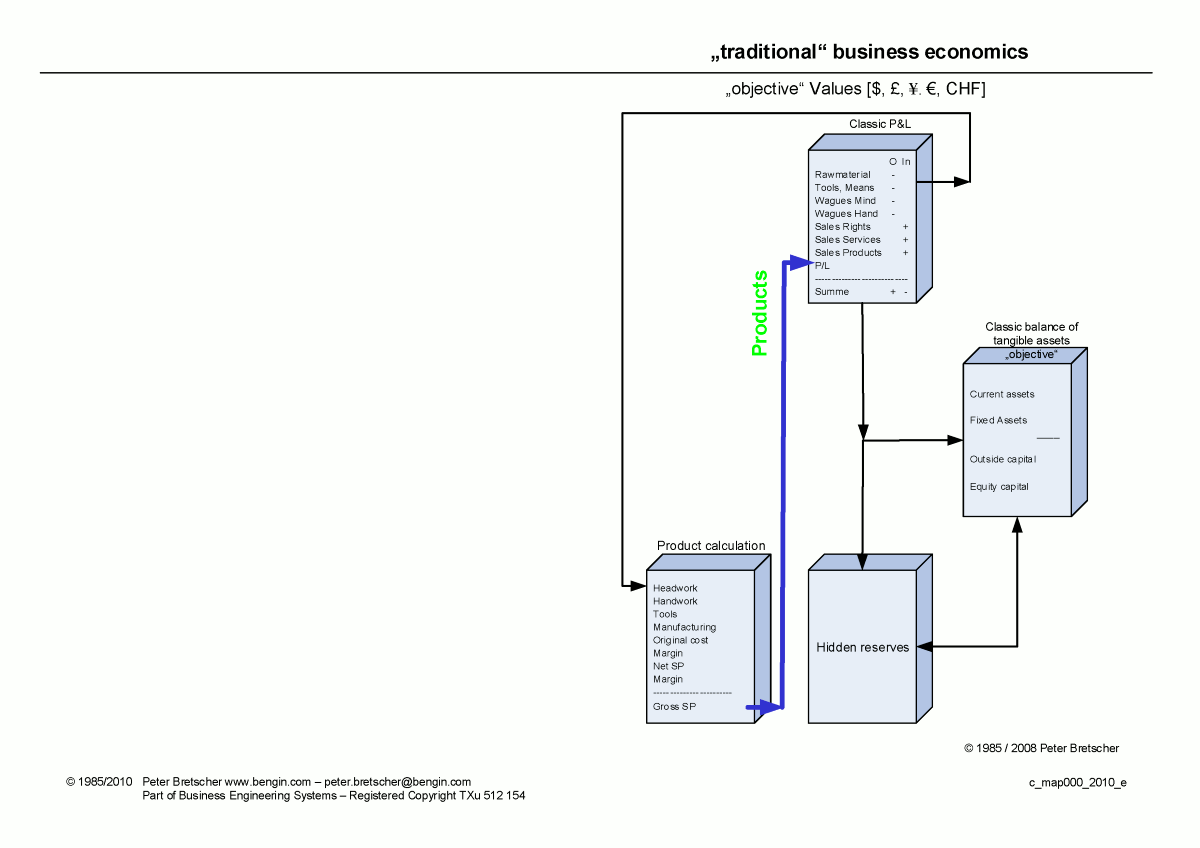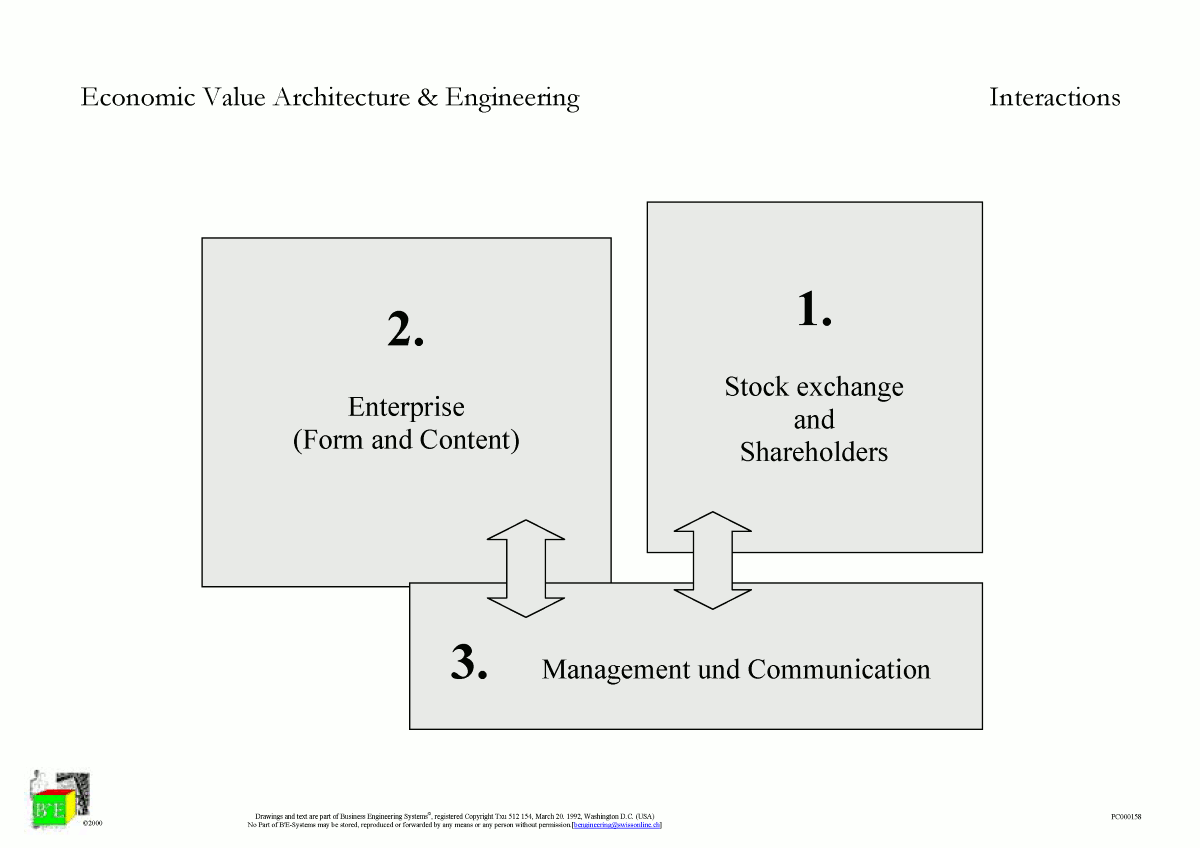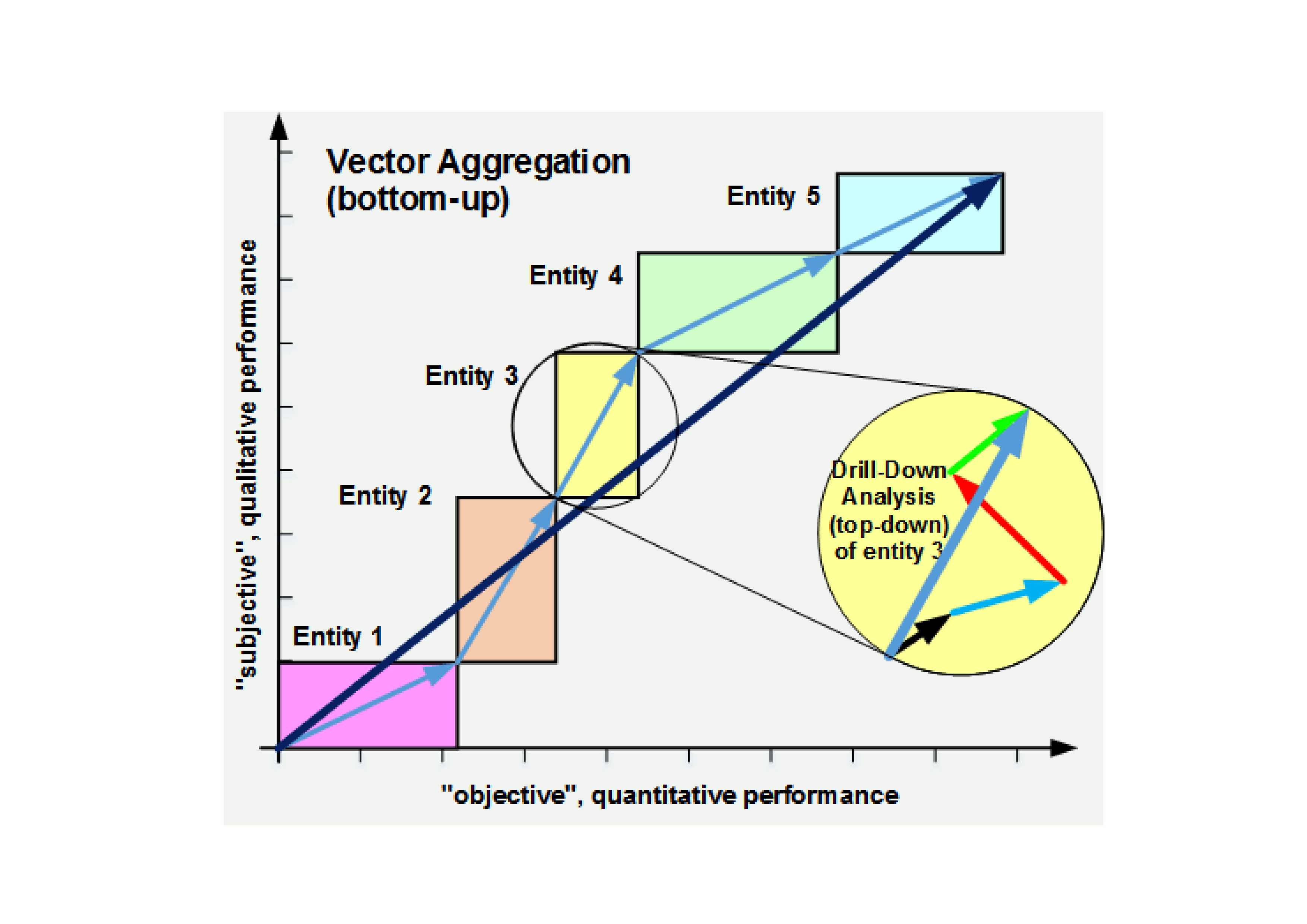Joseph Stiglitz talks about Business Engineering Systems
-
... need to move away from the traditional model of monetary profit maximization and embrace a more inclusive approach ...
Joseph Eugene Stiglitz (1943 - ...) is an American New Keynesian economist, a public policy analyst, and a full professor at Columbia University. He is a recipient of the Nobel Memorial Prize in Economic Sciences (2001)...
Joseph Stiglitz in English:
In today's global economy, it is essential to have business engineering systems that go beyond the traditional focus on products, services, licenses, and processes. To achieve smarter and more sustainable decisions, it is important to consider the primary resources that businesses rely on, including products, production means, documents, knowledge and skills, rights, and finance. A hybrid value paradigm that combines monetary and non-monetary value indicators is necessary to create a more comprehensive accounting system and to account for the externalities and social costs that traditional financial accounting methods often overlook.
The current economic system faces many challenges, including environmental degradation, inequality, and social unrest. A more holistic approach to business administration can help address these challenges by creating a more sustainable and equitable future. By valuing non-monetary resources and incorporating them into decision-making processes, businesses can make more informed choices that benefit not only their bottom line but also society and the environment.
We need to move away from the traditional model of monetary profit maximization and embrace a more inclusive approach that values people, the planet, and profits. The work of scholars like Elinor Ostrom and Kate Raworth has shown that a more cooperative and collaborative approach can lead to more sustainable outcomes. It is time for businesses to adopt a similar approach, using tools like business engineering systems to enhance their decision-making processes and create a better future for all.
Joseph Stiglitz in German:
In der heutigen globalen Wirtschaft ist es unerlässlich, über Business-Engineering-Systeme zu verfügen, die über den traditionellen Fokus auf Produkte, Dienstleistungen, Lizenzen und Prozesse hinausgehen. Um intelligentere und nachhaltigere Entscheidungen zu treffen, ist es wichtig, die primären Ressourcen zu berücksichtigen, auf die Unternehmen angewiesen sind, einschließlich Produkte, Produktionsmittel, Dokumente, Wissen und Fähigkeiten, Rechte und Finanzen. Ein hybrides Wertparadigma, das monetäre und nicht-monetäre Wertindikatoren kombiniert, ist notwendig, um ein umfassenderes Rechnungslegungssystem zu schaffen und die externen Effekte und sozialen Kosten zu berücksichtigen, die traditionelle Finanzbuchhaltungsmethoden oft übersehen.
Das derzeitige Wirtschaftssystem steht vor vielen Herausforderungen, darunter Umweltzerstörung, Ungleichheit und soziale Unruhen. Ein ganzheitlicherer Ansatz in der Betriebswirtschaftslehre kann dazu beitragen, diese Herausforderungen zu bewältigen, indem er eine nachhaltigere und gerechtere Zukunft schafft. Durch die Wertschätzung nicht-monetärer Ressourcen und deren Einbeziehung in Entscheidungsprozesse können Unternehmen fundiertere Entscheidungen treffen, die nicht nur ihrem Endergebnis, sondern auch der Gesellschaft und der Umwelt zugute kommen.
Wir müssen uns vom traditionellen Modell der monetären Gewinnmaximierung verabschieden und einen integrativeren Ansatz verfolgen, der die Menschen, den Planeten und die Gewinne wertschätzt. Die Arbeit von Wissenschaftlerinnen wie Elinor Ostrom und Kate Raworth hat gezeigt, dass ein kooperativerer und kollaborativerer Ansatz zu nachhaltigeren Ergebnissen führen kann. Es ist an der Zeit, dass Unternehmen einen ähnlichen Ansatz verfolgen und Tools wie Business-Engineering-Systeme einsetzen, um ihre Entscheidungsprozesse zu verbessern und eine bessere Zukunft für alle zu schaffen.
ChatGPT as Joseph Stiglitz
Want to have more voices?
-
Read Gottfried Wilhelm Leibniz (1646 - 1716)
Read Luca Pacioli (1713 - 1790)
Read Adam Smith (1713 - 1790)
Read Carl Friedrich Gauss (1777 - 1855)
Read Henry R. Towne (1844 - 1924)
Read John Maynard Keynes (1883 - 1946)
Read Joseph Schumpeter (1883 - 1950)
Read Albert Einstein (1879 - 1955)
Read Daniel Kahneman (1934 - 2024)
Read Joseph Stiglitz (1943 - ....)
ChatGPT as talking head for Legal Units:
ChatGPT in the role of Bain & Company
ChatGPT in the role of BCG
ChatGPT in the role of Deloitte
ChatGPT in the role of EY (Ernst & Young)
ChatGPT in the role of EY(2) (Ernst & Young)
ChatGPT in the role of EY-Parthenon
ChatGPT in the role of Harvard University
ChatGPT in the role of HSG University of St. Gallen
ChatGPT in the role of KPMG
ChatGPT in the role of McKinsey
ChatGPT in the role of PwC
Business Engineering Systems: Advanced models for business, policy, and consultants.
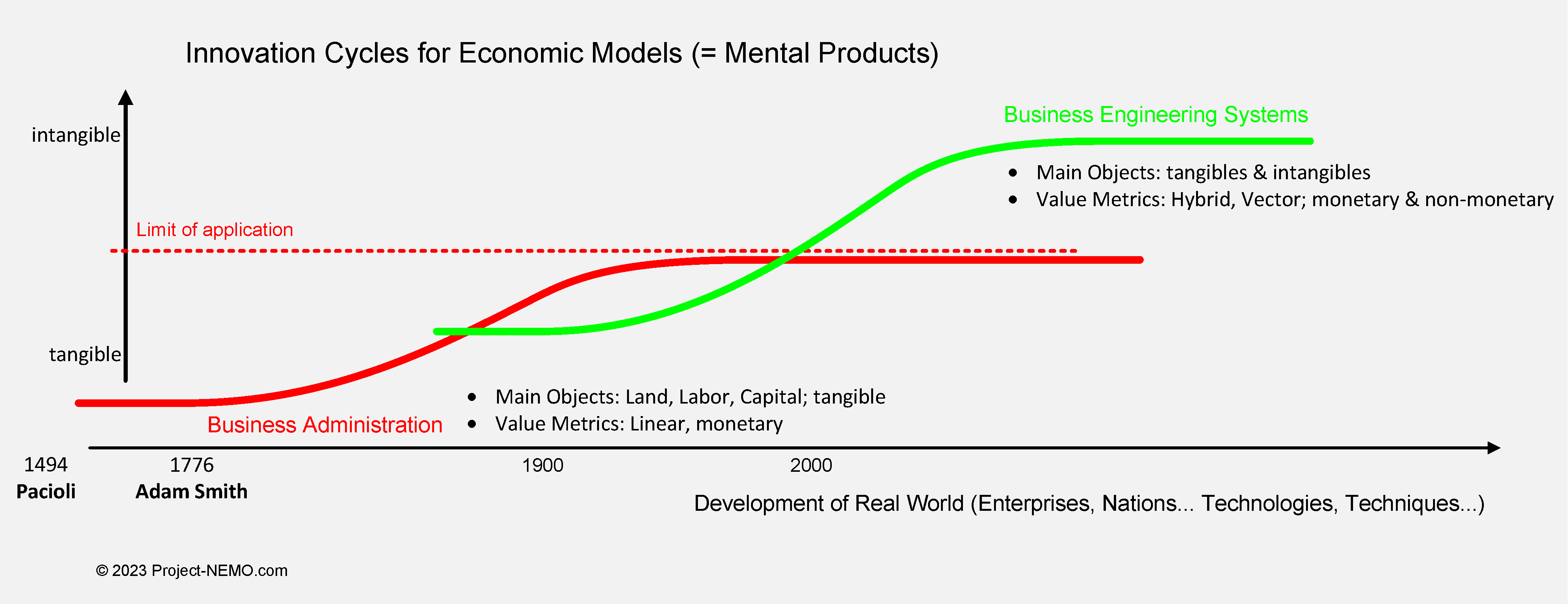
Today's models (i) start from tangible and intangible resources and (ii) use a multidimensional value paradigm in which non-monetary and subjective value attributes also count.
Four selected areas of focus from the BE systems:
Click on image for more information
Purpose of 'Project NEMO' (New/Next Economic/Enterprise Model) is to enhance classic economics by
(i) including intangible assets as the common (re)source of welfare and wealth and
(ii) disclosing a vector based hybrid value principle enabling monetary AND nonmonetary dimensions as a compound/hybrid measure.

